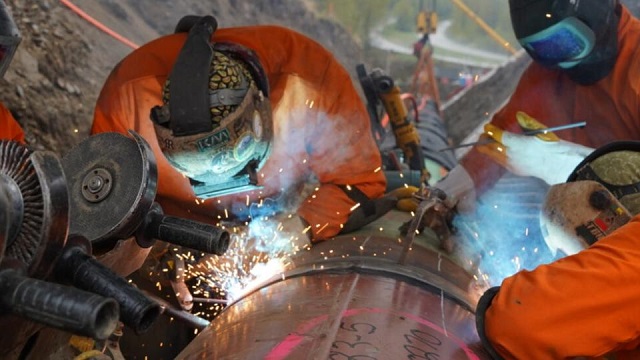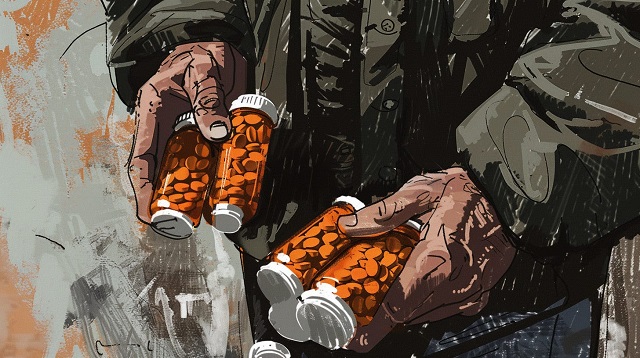Opinion
‘Secret’ RCMP memo blames everyone but the Liberals for Canada’s misery
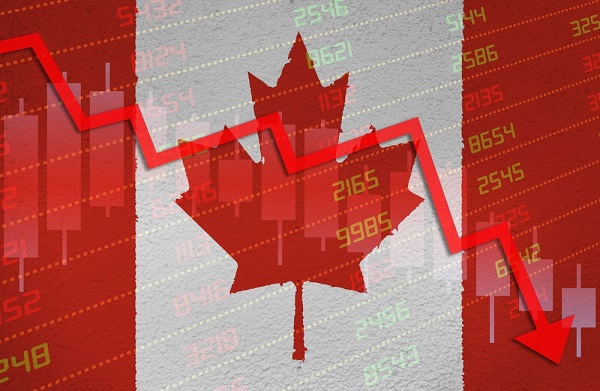
From LifeSiteNews
By Kennedy Hall
This is, of course, about Canada’s Conservative leader Pierre Poilievre, a man whom the left has tried to turn into a Super Trump since the day he stood up against COVID totalitarianism.
According to the National Post, a “secret” RCMP report that warns of a potential revolt by Canadians, once “they realize how broke they are,” has been unearthed by way of an access to information request.
Secret RCMP report warns Canadians may revolt once they realize how broke they are https://t.co/7IW4gjmS8v pic.twitter.com/Dq8obMHPKl
— National Post (@nationalpost) March 20, 2024
The report begins: “A secret RCMP report is warning the federal government that Canada may descend into civil unrest once citizens realize the hopelessness of their economic situation.”
Now, before we get into the meat of the supposed predictions, I think we would be wise to look at the information with a certain interpretive key. Keep in mind that the RCMP has become a Liberal Party institution, and we needn’t look any further for proof of that than the disgraced former RCMP Commissioner Brenda Lucki, who was appointed by Trudeau and subsequently gave him a run for his money with how many scandals she was caught up in.
COVID, Russia, and climate change destroying the world
The report — heavily redacted and embedded at the bottom of the article — starts with a stunning statement. It reads: “The global community has experienced a series of crises, with COVID-19, supply-chain issues, and the Russian invasion of Ukraine all sending shockwaves throughout the world.” It goes on to say that the situation will “probably” get worse and the “early effects of climate change and a global recession” will only add fuel to the fire of the deterioration of Canada and the global community.
Note that this striking claim is presented as fact, without proof or evidence, and is the leading thought of the document. The report goes on to say: “The coming period of recession will … accelerate the decline in living standards that the younger generations have already witnessed compared to earlier generations.” It adds that “many Canadians under 35 are unlikely ever to be able to buy a place to live.”
So, the theme of the document is that the world, and Canada in particular, is going to hell in a hand-basket, and the reasons for that are primarily COVID, Russia, the climate, and not the government. How convenient! After almost a decade of Trudeau, a report surfaces when his popularity is in the sewer that blames everyone but him for the deciding state of the country he has done his best to ruin.
READ: Deputy PM Chrystia Freeland is championing ‘decarbonization’ at the WEF as Canada falls apart
Karl Marx and the conspiracy nuts
Tellingly, after hammering home the dire situation on the horizon — where it will be if the Liberals have their way — the document predicts that the coming dark age will be accelerated by “popular resentment” and “paranoid populism.”
Now, any astute reader of the news with right-leaning sensibilities will understand what those terms mean. “Popular resentment” is a dog whistle for a Marxist worldview that pits groups of people against one another in a “struggle” for prosperity. “Paranoid populism” is an abbreviation of “People who are involved in populist movements, like Donald Trump — and by extension Poilievre — supporters, are paranoid conspiracy nuts.”
The popular resentment section reads: “The fallout from this decline in living standards will be exacerbated by the fact that the difference between the extremes of wealth is greater now… than it has been at any time in several generations.”
Translation: The rich are lording over the poor, and the poor are poorer than they ever have been. Of course, there is some truth to this, as there is always truth to this in human society where there are always “haves” and “have nots.”
The section on paranoid populism then tellingly implies that those afflicted by populist paranoia will pounce on this struggle. It reads: “Capitalizing on the rise of political polarization and conspiracy theories have been populists willing to tailor their messages to appeal to extremist movements. Authoritarian movements have been on the rise…”
Amazing. According to this report, we are living in a Marxist moment where the proletariat is struggling for their survival against the bourgeoisie, and the real threat is the rise of a populist movement which appeals to extremists with conspiracy theories. Again, a liberal institution will put the blame for the apocalypse on anyone but liberals.
This is really about Poilievre
Now, if you were a betting man, who do you think the document is referring to, given that it is a Canadian document that has been conveniently released just when the Conservatives have threatened to topple the government with a non-confidence motion? This is, of course, about Conservative leader Pierre Poilievre, a man whom the left has tried to turn into a Super Trump since the day he stood up against COVID totalitarianism. Poilievre is far from a right-wing Christian hero — he holds views incompatible with Christian morality — but he is still enough of a populist and common-sense politician that he represents a mortal threat to the regime.
Is the Canadian economic situation bleak? Yes. Will it take a lot of work and common-sense governance to turn things around? Of course. And, again, Poilievre is not the savior, but the man can at least do proper math and understands what the average Canadian is struggling with. If he enacts any of his red tape removing policies, surely Canada will be able to start recovering. The Liberals cannot abide this, as they clearly want to destroy this nation.
It is clear by this point that the Liberal Party will be decimated in the next election, whenever that is, as every poll imaginable has them losing so many seats that they will be able to drive to work together in an airport shuttle van. And, since liberals are incapable of self-reflection and critical thinking, their only hope in their hopeless situation is to sound the alarm of the coming Canadian Armageddon and warn Canadians that it is everyone but they who are to blame, and the opposition will only burn the country down faster than a wildfire that was caused by conservative disbelief in climate change.
For my money, this “secret” document is nothing but a piece of propaganda from a desperate regime.
Censorship Industrial Complex
Elon Musk skewers Trudeau gov’t Online Harms bill as ‘insane’ for targeting speech retroactively

From LifeSiteNews
It literally spits in the face of all Western legal traditions, especially the one about only being punished if you infringed on a law that was valid at the time of committing a crime
Billionaire tech mogul Elon Musk remarked that it is “insane” that the Trudeau government’s proposed “Online Harms” bill would target internet speech retroactively if it becomes law.
“This sounds insane if accurate!” wrote Musk on Tuesday, in reply to an X (formerly Twitter) user named Camus who detailed that Prime Minister Justin Trudeau’s government’s Bill C-63, the Online Harms Act, could see Canadians fined or even jailed for things posted on the internet prior to the bill becoming law.
Camus noted how Bill C-63 could give police “the power to retroactively search the Internet for ‘hate speech’ violations and arrest offenders, even if the offence occurred before the law existed.”
A brief time later, X’s “CommunityNotes” program – a system in which users collectively “fact-check” information shared on the site –confirmed what Camus had written was accurate, quoting a section of the bill’s text.
“Part 3 of Bill C-63, which is still at first reading stage and is not yet law, adds to the Canadian Human Rights Act: ‘a person communicates or causes to be communicated hate speech so long as the hate speech remains public and the person can remove or block access to it,’” CommunityNotes wrote.
Camus observed about Bill C-63 that the “Trudeau regime has introduced an Orwellian new law.”
“This new bill is aimed at safeguarding the masses from so-called ‘hate speech,’” he wrote. “The real shocker in this bill is the alarming retroactive aspect. Essentially, whatever you’ve said in the past can now be weaponized against you by today’s draconian standards.”
Camus observed how historian Dr. Muriel Blaive has weighed in on “this draconian law,” labeling it outright “mad.”
“She points out how it literally spits in the face of all Western legal traditions, especially the one about only being punished if you infringed on a law that was valid at the time of committing a crime,” wrote Camus.
Bill C-63 was introduced by Liberal Minster Attorney General Arif Virani on February 26 and was immediately blasted by constitutional experts as troublesome.
The bill, if passed, will modify existing laws, amend the Criminal Code as well as the Canadian Human Rights Act, in what the Liberals claim will target certain cases of internet content removal, notably those involving child sexual abuse and pornography.
However, the bill also seeks to police “hate” speech online with broad definitions, severe penalties, and dubious tactics.
Trudeau’s new bill a ‘terrible attack’ on speech, Musk warns
On Tuesday, well-known Canadian psychologist Jordan Peterson replied to Musk by saying about Bill C-63, “It’s much much worse than you have been informed: plans to shackle Canadians electronically if accusers fear a ‘hate crime’ might (might) be committed.”
“It’s the most Orwellian piece of legislation ever promoted in the West.”
Musk replied to Peterson by saying Bill C-63 is “[a] terrible attack on the rights of Canadians to speak freely!”
Other notable X users, such as Canadian lawyer David Freiheit, who is known online as Viva Frei, confirmed Musk’s concern that Bill C-63 could go after X users from posts/tweets made long ago.
“It’s pretty close to accurate, Elon. If someone has the ability to delete a ‘hate speech’ tweet / post and does not, and someone else retweets that tweet, it would qualify as ‘publication’ under the law and be sanctionable,” he wrote.
Details of the new legislation to regulate the internet show the bill could lead to more people jailed for life for “hate crimes” or fined $50,000 and jailed for posts that the government defines as “hate speech” based on gender, race, or other categories.
The bill also calls for the creation of a digital safety commission, a digital safety ombudsperson, and a digital safety office.
The Justice Centre for Constitutional Freedoms (JCCF) has said Bill C-63 is “the most serious threat to free expression in Canada in generations. This terrible federal legislation, Bill C -63, would empower the Canadian Human Rights Commission to prosecute Canadians over non-criminal hate speech.”
In a recent podcast, Peterson and Queen’s University law professor Bruce Pardy warned of the “totalitarian” impact Trudeau’s new Online Harms bill will have on Canada.
Peterson observed that the Trudeau government is effectively “establishing an entirely new bureaucracy” with an “unspecified range of power with non-specific purview that purports to protect children from online exploitation” but has the possibility of turning itself into an internet “policing state.”
MAiD
Even Canadian leftists are starting to recognize the ‘dystopian’ nature of MAiD

From LifeSiteNews
Euthanasia based on poverty or disability is rarely based on personal choice and autonomy, it is horrifying, it is profane, it is the outcome of a failed social welfare system, and it is indefensible.
David Moscrop wrote an excellent article that was published by Jacobin Magazine on May 2, 2024. Jacobin is an ideologically left magazine, which is concerned about Canada killing people with disabilities and the poor by euthanasia, known as MAiD (Medical Assistance in Dying).
The article begins with this quote:
Canada boasts one of the world’s highest assisted-death rates, supposedly enabling the terminally ill to die with dignity. However, this suicide program increasingly resembles a dystopian replacement for care services, exchanging social welfare for euthanasia.
Moscrop tells the story of Normand Meunier, the quadriplegic man in Québec who died by euthanasia after suffering from horrific neglect. Moscrop writes:
For want of a mattress, a man is dead. That’s the story, in sum, of a quadriplegic man who chose to end his life in January through medically assisted death. Normand Meunier’s story, as reported by the CBC, began with a visit to a Quebec hospital due to a respiratory virus. Meunier subsequently developed a painful bedsore after being left without access to a mattress to accommodate his needs. Thereafter, he applied to Canada’s Medical Assistance in Dying (MAiD) program.
As Rachel Watts writes in her report, Meunier spent ninety-five hours on a stretcher in the emergency room – just hours short of four days. The bedsore he developed ‘eventually worsened to the point where bone and muscle were exposed and visible – making his recovery and prognosis bleak.’ The man who ‘didn’t want to be a burden’ chose to die at home. An internal investigation into the matter is underway.
I find it interesting that the article states that Meunier chose to die by euthanasia when in fact he was put into an untenable situation. Moscrop then reinforces the concerns of the disability community:
Disability and other advocates have been warning us for years that MAiD puts people at risk. They warned that the risk of people choosing death – because it’s easier than fighting to survive in a system that impoverishes people, and disproportionately does so to those who are disabled – is real. Underinvestment in medical care will push people up to and beyond the brink, which means some will choose to die instead of ‘burden’ their loved ones or society at large. They were right.
Moscrop comments on how euthanasia is the outcome of a failed social welfare state:
A libertarian ethos partially underwrote the fact that not many people blinked when MAiD was initially rolled out. Taking a more expansive view of rights, many of those not swayed by rote libertarianism were convinced that concerns over bodily autonomy and compassion were reason enough to adopt MAiD. However, in the absence of a robust welfare state, and in the face of structural poverty and discrimination, particularly toward disabled people, there is no world in which the MAiD program can be understood to be ‘progressive.’
Indeed, last year, Jeremy Appel argued that MAiD was ‘beginning to look like a dystopian end run around the cost of providing social welfare.’ Initially supportive, he changed his mind on MAiD as he considered that the decisions people make are not strictly speaking individual but are instead collectively shaped and sometimes ‘the product of social circumstances, which are outside of their control.’ When we don’t care for one another, what do we end up with?
‘I’ve come to realize,’ wrote Appel, ‘that euthanasia in Canada represents the cynical endgame of social provisioning with the brutal logic of late-stage capitalism – we’ll starve you of the funding you need to live a dignified life [. . .] and if you don’t like it, why don’t you just kill yourself?’
READ: Young, healthy women being euthanized in the Netherlands should be a warning for Canada
Moscrop then comments on that euthanasia for psychiatric reasons has been delayed in Canada based on the lack of mental health care. He refers to the reality as grotesque and writes that this is the stuff of nightmarish science fiction. Moscrop comments on the broken social welfare system in Canada.
In Canada’s most populous province, Ontario, a recipient of disability support receives about $1,300 a month – a pittance they’re meant to stretch to cover food, shelter, and other basic needs. Ontario Works – the province’s welfare program – pays a current maximum of $733 a month. Meanwhile, rental costs for a one bedroom apartment routinely push toward an average of $2,000 a month in many cities. In April, in Toronto, a one bedroom apartment averaged almost $2,500 a month.
Moscrop challenges a statement by euthanasia activists James Downer and Susan MacDonald who stated:
Despite fears that availability of MAiD for people with terminal illness would lead to requests for MAiD driven by socioeconomic deprivation or poor service availability (e.g., palliative care), available evidence consistently indicates that MAiD is most commonly received by people of high socioeconomic status and lower support needs, and those with high involvement of palliative care.
Moscrop replies:
By their own admission, the data on this matter is imperfect. But even if it were, the fact that ‘most’ patients who choose MAiD are better off socioeconomically is beside the point. Some are not – and those ‘some’ are important. That includes a man living with Amyotrophic Lateral Sclerosis who, in 2019, chose medically assisted death because he couldn’t find adequate medical care that would also allow him to be with his son. It also includes a man whose application listed only ‘hearing loss,’ and whose brother says he was ‘basically put to death.’ This story came a year after experts raised the concern that the country’s MAiD regime was in violation of the Universal Declaration of Human Rights.
In 2022, Global News said the quiet part out loud: poverty is driving disabled Canadians to consider MAiD. Those ‘some’ who are driven to assisted death because of poverty or an inability to access adequate care deserve to live with dignity and with the resources they need to live as they wish. They should never, ever feel the pressure to choose to die because our social welfare institutions are starved and our health care system has been vandalized through years of austerity and poor management.
Moscrop then states that Canada has the resources to prevent endemic poverty and provide adequate care, that poor people being euthanized by the state is profane.
Moscrop then refers to a recent article by professor Trudo Lemmens who is a critic of Canada’s euthanasia law.
In a February piece for the Globe and Mail, University of Toronto law professor Trudo Lemmens wrote, ‘The results of our MAiD regime’s promotion of access to death as a benefit, and the trivialization of death as a harm to be protected against, are increasingly clear.’ In critiquing MAiD’s second track, which allows physician-assisted death for those who do not face ‘a reasonably foreseeable death,’ Lemmens points out that within two years of its adoption, ‘“track two”’ MAiD providers had ended already the lives of close to seven hundred disabled people, most of whom likely had years of life left.’
In raising concerns about expanding MAiD to cover mental illness, Lemmens added that ‘there are growing concerns that inadequate social and mental health care, and a failure to provide housing supports, push people to request MAiD,’ noting that ‘[a]dding mental illness as a basis for MAiD will only increase the number of people exposed to higher risks of premature death.’
Moscrop continues by referring to a commentary from disability leader Gabrielle Peters.
In 2021, Gabrielle Peters warned in Maclean’s that extending MAiD to cover those who weren’t facing an immediately foreseeable death was ‘dangerous, unsettling and deeply flawed.’ She traced the various ways in which a broader MAiD law could lead to people choosing to die in the face of austerity, adding an intersectional lens that is often missing from our discussions and debates over the issue.
She warned that we were failing to consider ‘how poverty and racism intersect with disability to create greater risk of harm, more institutional bias and barriers, additional layers of othering and dehumanization, and fewer resources for addressing any of these.’ And now here we are. We should have listened more carefully.
Moscrop ends his article by suggesting that euthanasia may be OK based on personal choice but it is indefensible when it is based on poverty.
While MAiD may be defensible as a means for individuals to exercise personal choice in how they live and how they die when facing illness and pain, it is plainly indefensible when state-induced austerity and mismanagement leads to people choosing to end their lives that have been made unnecessarily miserable. In short, we are killing people for being poor and disabled, which is horrifying.
It thus falls to proponents of MAiD to show how such deaths can be avoided, just as it falls to policymakers to build or rebuild institutions that ensure no one ever opts to end their life for lack of resources or support, which we could provide in abundance if we choose to.
I agree with most of Moscrop’s comments but I disagree with his statement that euthanasia is possibly defensible as a means of individuals exercising personal choice. Even though people with disabilities experience social devaluation in Canada, they may be still exercising personal choice when they ask to be killed.
The problem with modern writers is that they miss the fact that euthanasia is about killing people. Even if Canada had a greater level of equality, there would be people who ask to be killed based on their poverty or their concerns about homelessness.
The real concern is that Canada has given medical professionals the right in law to kill their patients. This is about people killing people.
Nonetheless Moscrop is right that euthanasia based on poverty or disability is rarely based on personal choice and autonomy, it is horrifying, it is profane, it is the outcome of a failed social welfare system, and it is indefensible.
Reprinted with permission from the Euthanasia Prevention Coalition.
-

 COVID-191 day ago
COVID-191 day agoAstraZeneca withdraws COVID vaccines worldwide amid lawsuits alleging severe harm
-
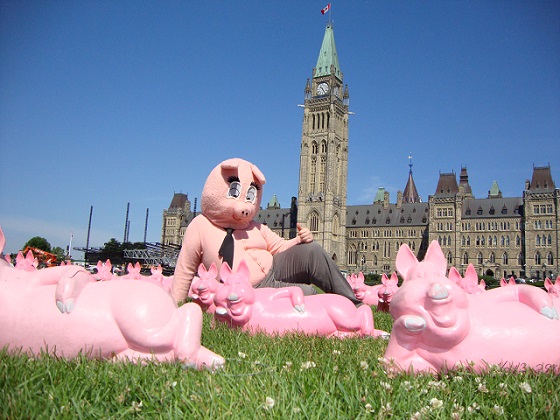
 National2 days ago
National2 days agoTaxpayers Federation presents Teddy Waste Awards for worst government waste
-

 Censorship Industrial Complex1 day ago
Censorship Industrial Complex1 day agoInternet censorship laws lead a majority of Canadians to believe free speech is threatened: poll
-
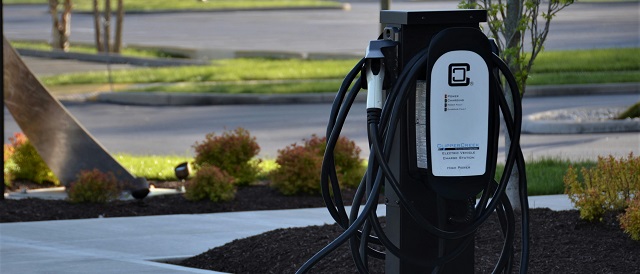
 Automotive2 days ago
Automotive2 days agoNew Analysis Shows Just How Bad Electric Trucks Are For Business
-

 COVID-191 day ago
COVID-191 day agoElon Musk’s X will help fund COVID shot critic’s ongoing legal battle against Canadian university
-
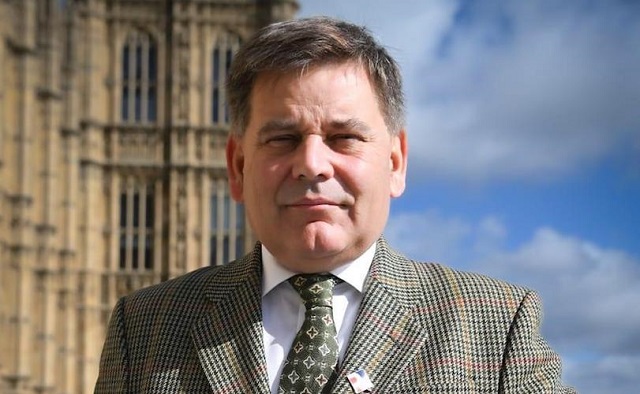
 COVID-1916 hours ago
COVID-1916 hours agoBritish MP Andrew Bridgen gives powerful speech on ‘scandal’ of excess deaths after COVID jab rollout
-
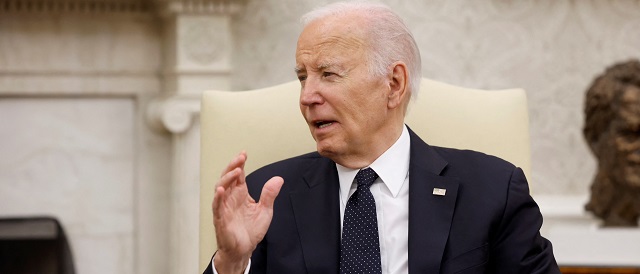
 Censorship Industrial Complex1 day ago
Censorship Industrial Complex1 day agoBiden Agencies Have Resumed Censorship Collaboration With Big Tech, Dem Senate Intel Chair Says
-

 International2 days ago
International2 days agoWhy Biden’s Gaza refugee plan is a hard hell no





